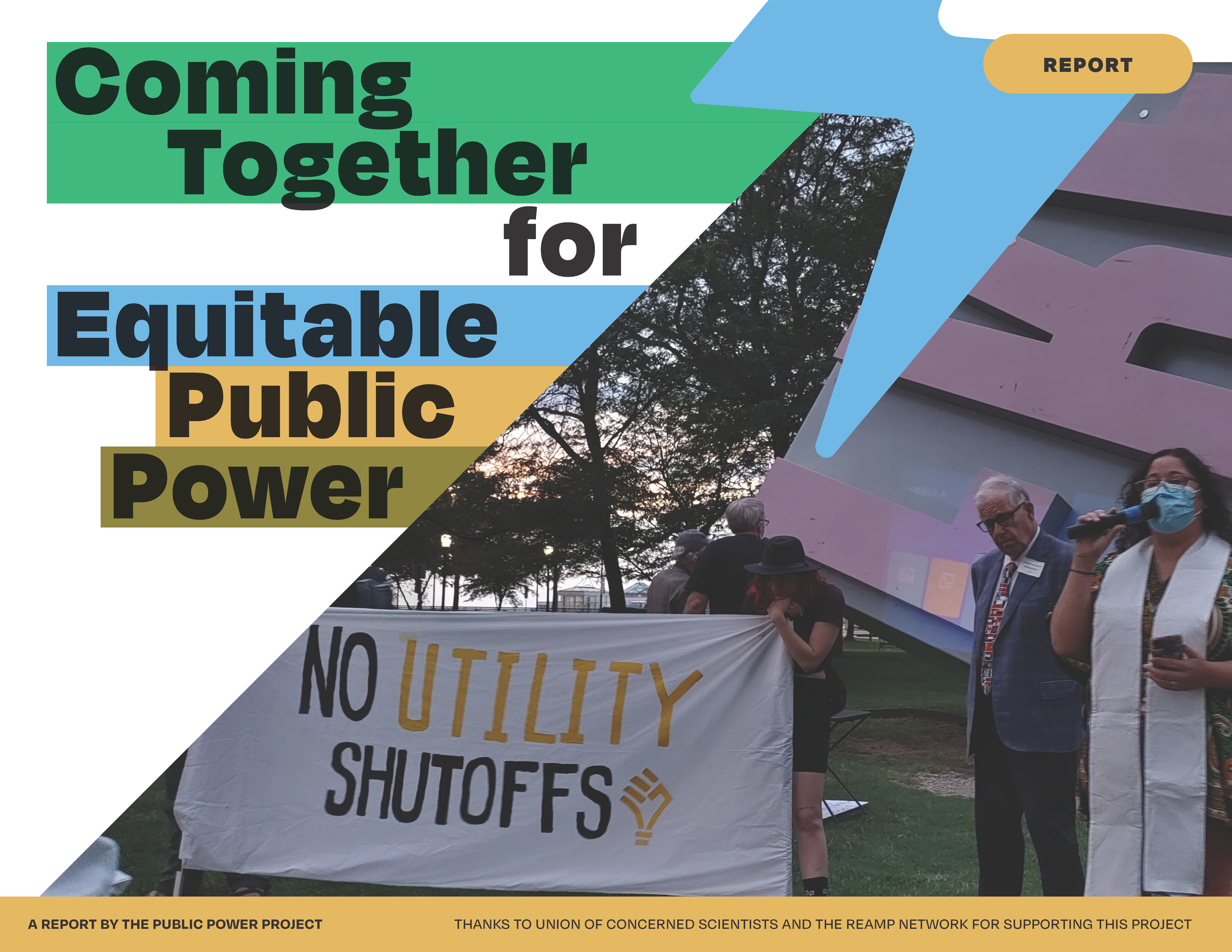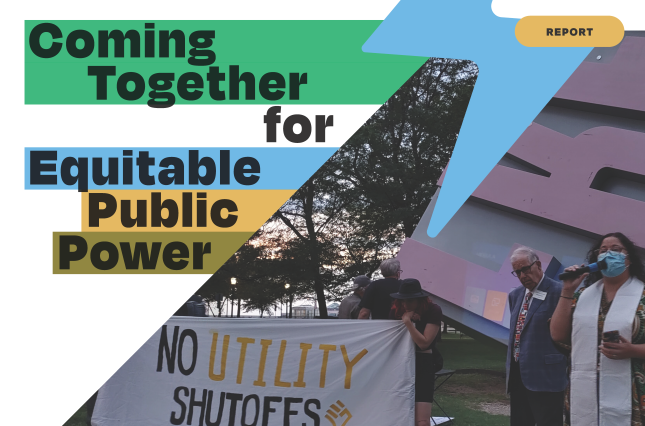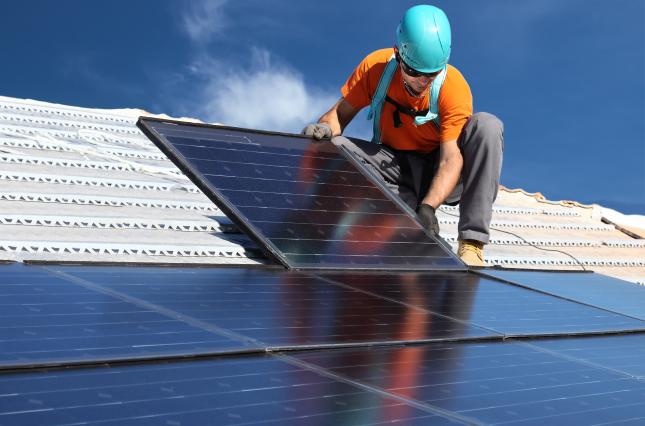
Ann Arbor, MI – Today Clean Water Fund, The Union of Concerned Scientists, The RE-AMP network and other partners across the Midwest released Coming Together For Equitable Public Power, the culmination of a two year effort to develop an accurate landscape of the existing and emerging sector with a focus on municipal power utilities, a particular form of power distribution that is publicly-owned instead of investor-owned.
With this research, we invite you to dive into communities across the Midwest taking on the hard work of power distribution and community action.
Municipalization, or the act of creating a publicly owned power utility, is not a new concept. Communities including Muscatine, IA, Cleveland, OH, or Lansing, MI have had municipal power for quite some time. Others such as Decorah, IA and Ann Arbor, MI have recently taken the fight for local control to their city councils and voters. The history of these different ownership structures is intricately entangled with the systems that now drive decision making about how the essential service of electricity is generated and distributed.
The report is the culmination of several dozen interviews and two focus groups and hours of research over the course of the last year. It includes insights from communities in Michigan, Iowa, Ohio, Illinois, and Minnesota while drawing on expertise from communities in Nebraska, Maine, and Florida. Many thanks to the experts, organizers, city officials, and public power administrators who helped us see a path forward in this work.
“Throughout our discussions it became clear that the work of holding actors in the energy system accountable can feel like a very local fight, but communities across the region and the country are having the same challenging conversations,” said Erik McCleary, Southeast Michigan Program Organizer for Clean Water Fund. “This report offers new insights about how to make energy more affordable, reliable, and equitable through the lens of public power.”
Coming Together For Equitable Public Power was produced by The Public Power Project, a collaborative effort to conduct a review of public power efforts in the Midwest from the perspective of campaigners, public officials, staff of existing municipal power utilities, and communities already served by public power. We seek to understand the landscape, identify equity and environmental issues, and zero in on opportunities to advance and improve the work. With an eye toward the transition to renewable power generation, we aimed to look at this subject through the lens of equity to accurately display the landscape while offering insights that can be of use to public officials and the communities they serve.
“Trusting that your electricity will be affordable and reliable has become increasingly more important,” added Colin Byers, Senior Campaign Coordinator for The Union of Concerned Scientists. “The Public Power Project has found some key steps towards accountability and equitable management of public power institutions, new and old, enabling them to be more transparent and accessible to those using and impacted by their services.”
“The energy transition is happening, and the question of ownership and control is more pressing now than it has been in a century,” concluded Jackson Koeppel, staff member of The Public Power Project. “I believe the insights from this report can help address the legacy of racial and economic inequity and move towards just transition to an energy system that puts the health, safety, and resilience of communities first.”
###
Clean Water Fund’s programs reach and involve more than one million households each year through outreach, education, organizing, advocacy and policy action at the local, state and national levels. Together with Clean Water Action, Clean Water Fund supports the goal of fishable, swimmable, drinkable water for everyone. Priority programs and strategies include policies that put drinking water first from watershed to water tap, environmental health solutions that prevent waste and pollution at the source, and clean energy and climate solutions that create jobs and protect water. Learn more at www.cleanwaterfund.org.
The Union of Concerned Scientists is the leading science-based nonprofit working for a healthy environment and a safer world. UCS combines independent scientific research and citizen action to develop innovative, practical solutions and to secure responsible changes in government policy, corporate practices, and consumer choices. Learn more at www.ucsusa.org.
The Public Power Project is a collaborative effort to conduct a review of public power efforts in the Midwest from the perspective of campaigners, public officials, staff of existing municipal power utilities, and communities already served by public power. Read the full report, "Coming Together For Equitable Public Power", at www.cleanwater.org/publicpower.

